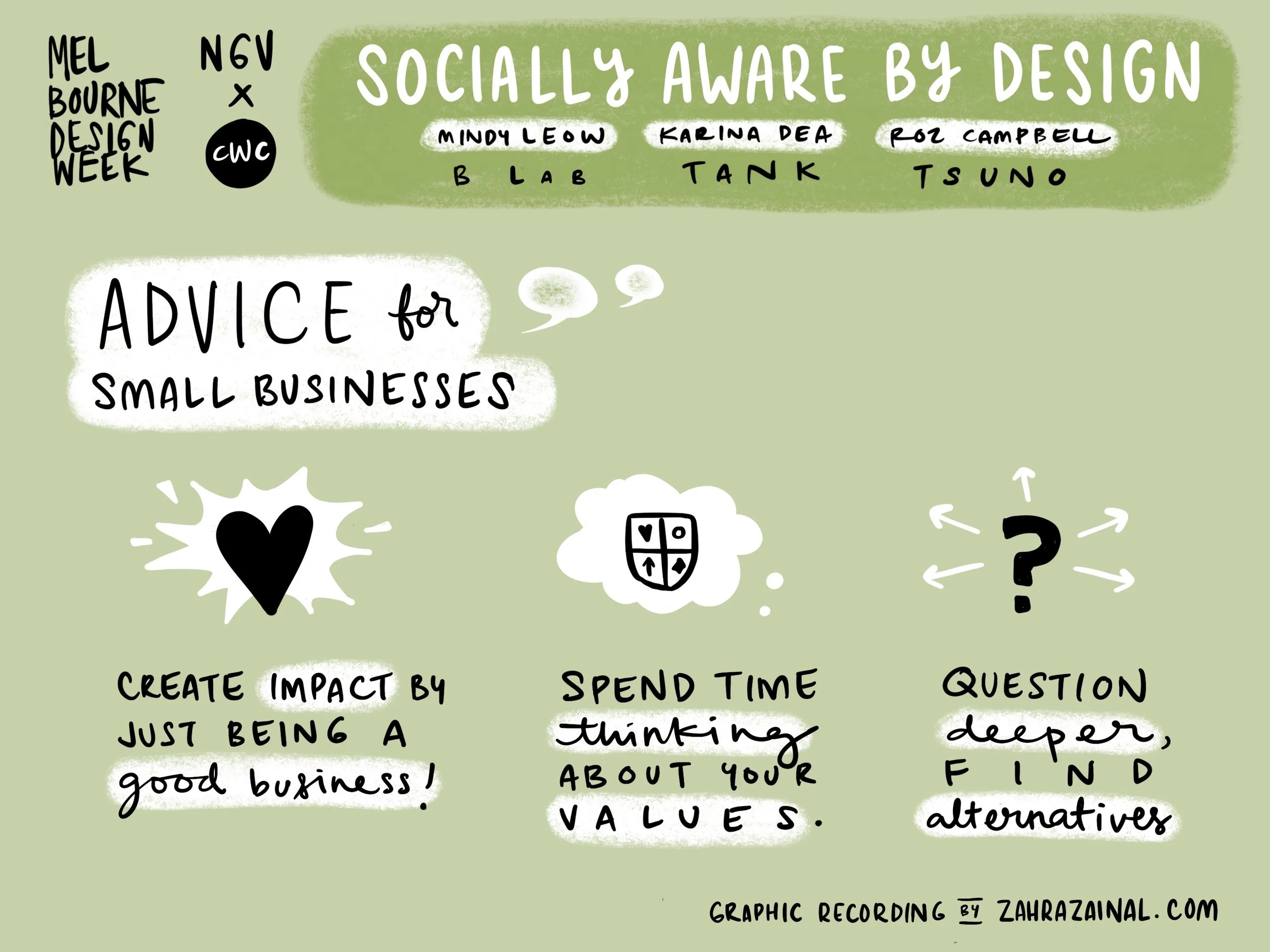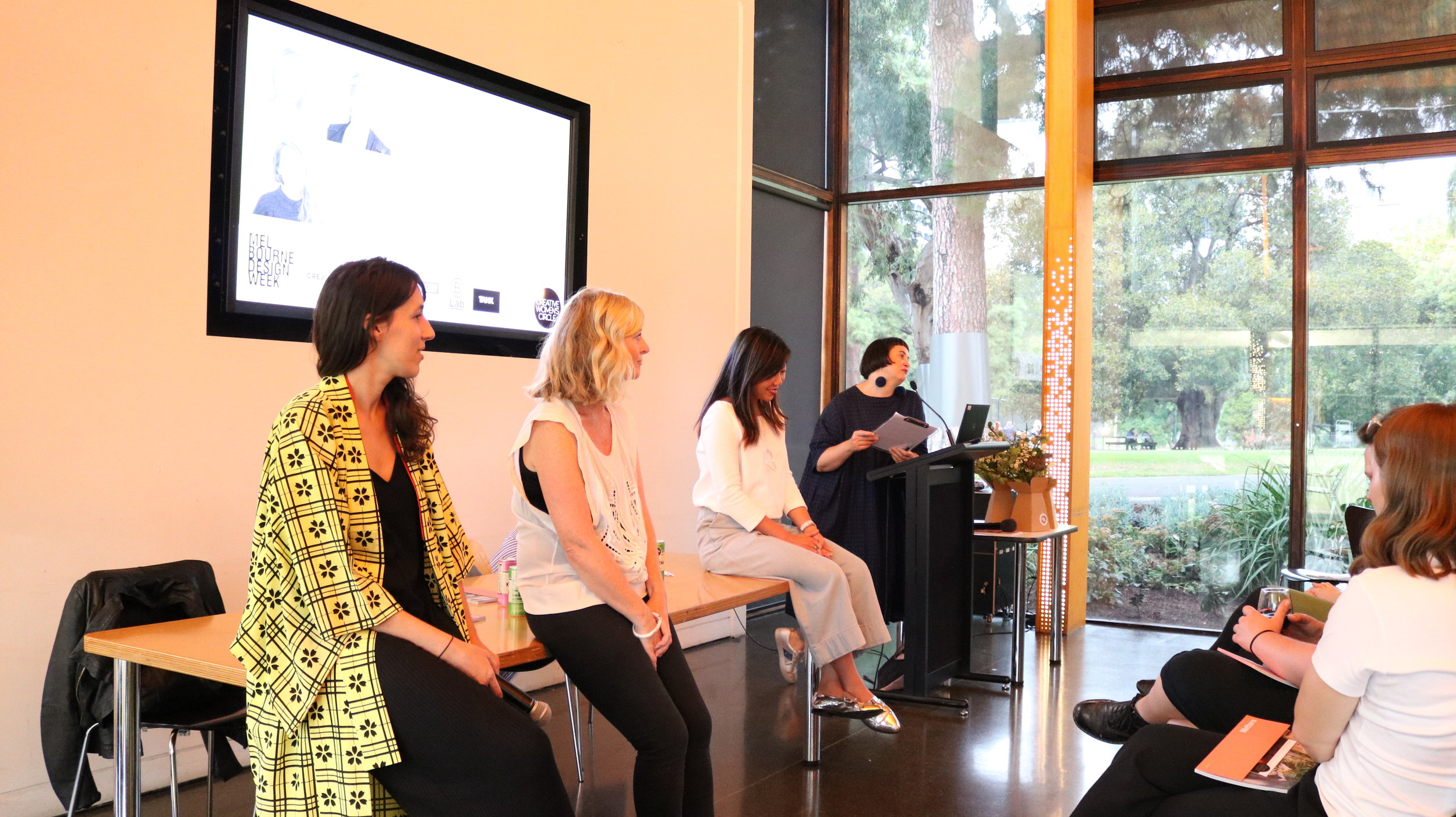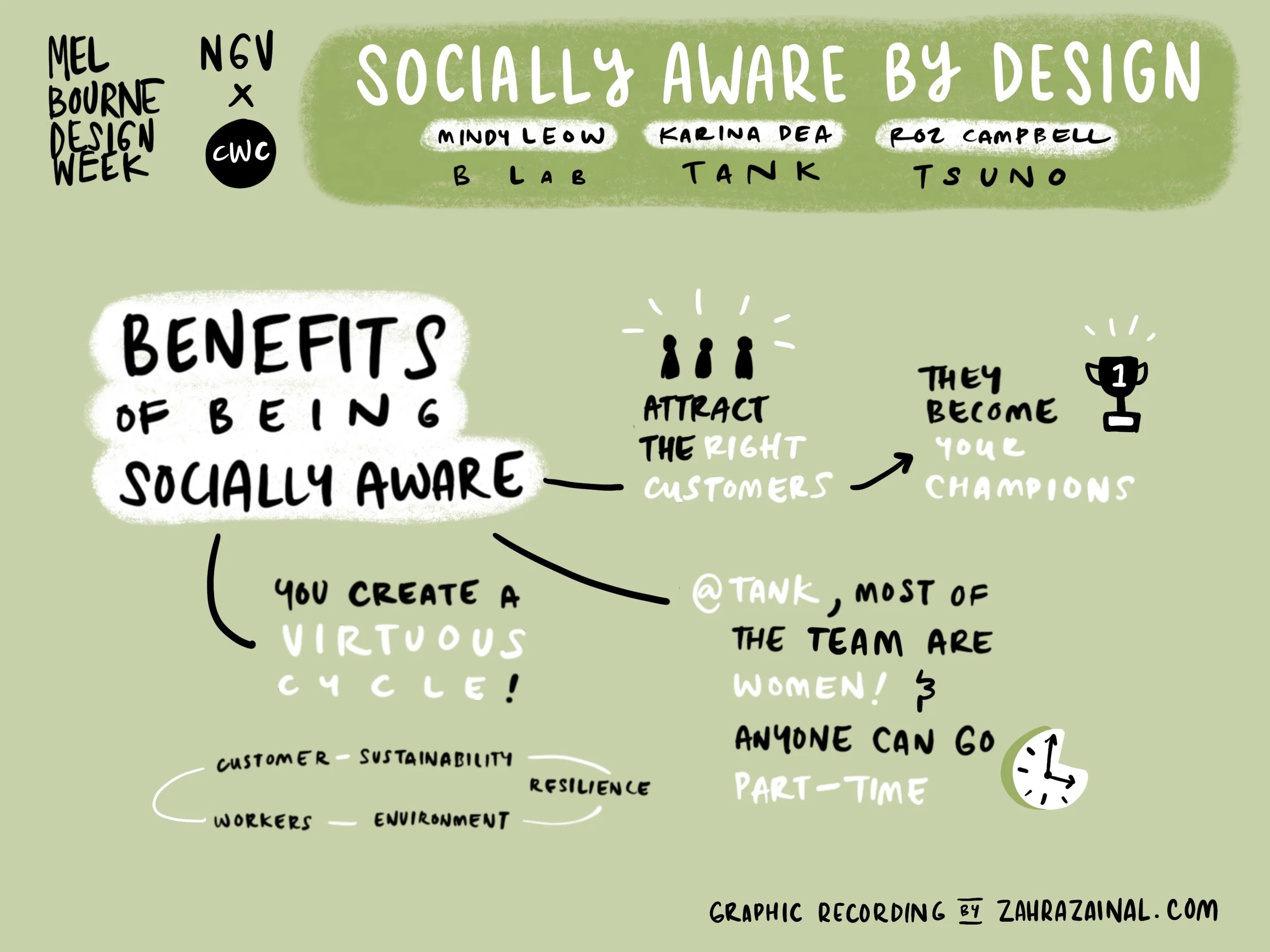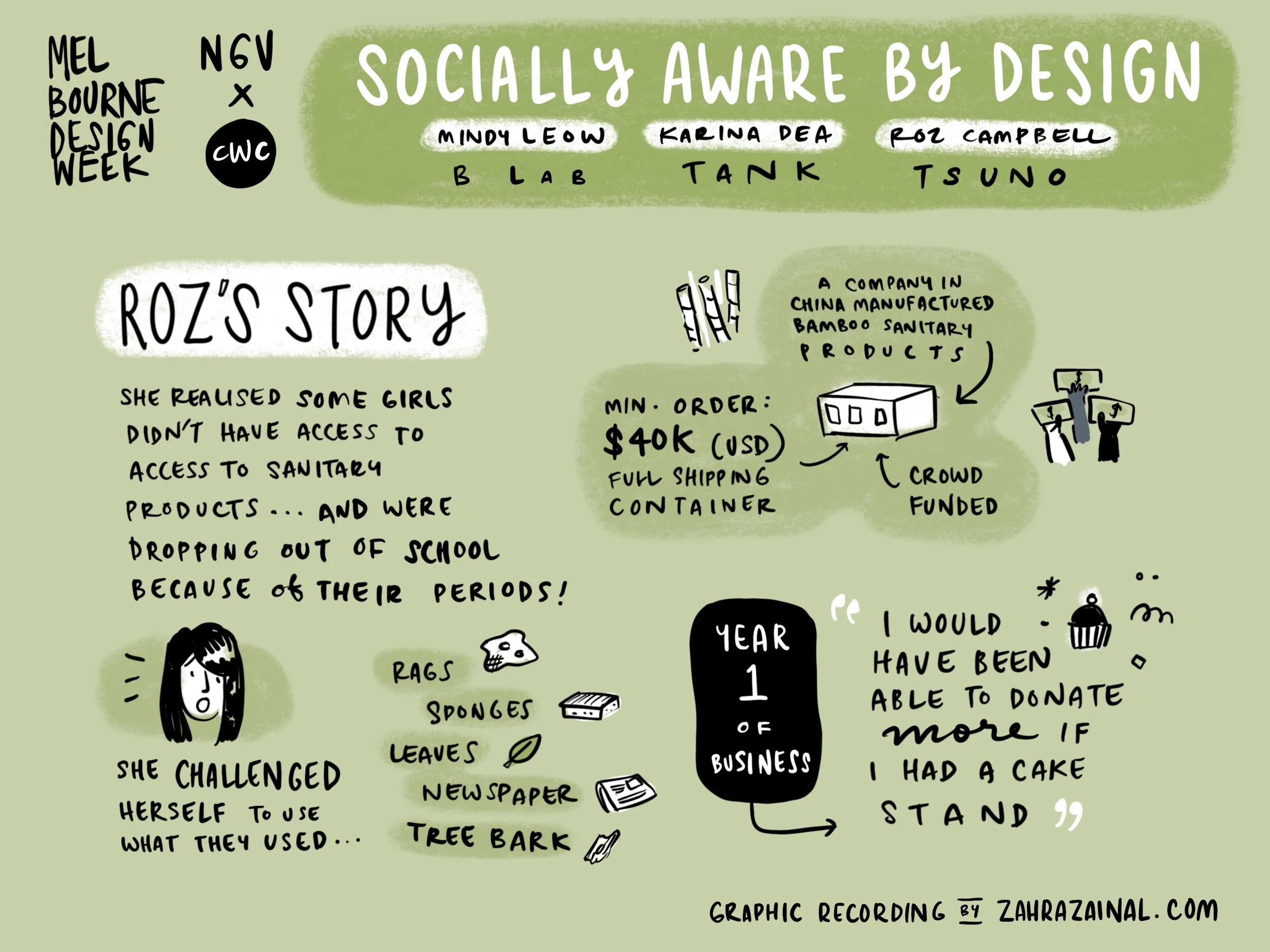Event recap: Five things you need to know about starting a socially aware business...
...and other things I learned at the CWC x NGV Design Week event.
On a balmy autumn night at the Melbourne Bowls Club, I joined a group of CWC members, eager to hear the experiences of women who have set out to be socially aware by design. Perhaps it was the Remedy Kombucha we were all drinking, but there was a real buzz in the air as host and CWC Board Member, Annette Wagner, introduced a panel of talented business women in-the-know: Mindy Leow from not-for-profit, B Lab AU & NZ; Karina Dea, co-founder of Tank creative agency; and Roz Campbell of social enterprise, Tsuno, selling disposable sanitary products.
L - R: Roz Campbell (Tsuno), Katrina Dea (Tank Creative), Mindy Leow (B Lab), Netti Burke (CWC)
If you’re a small business owner like me, you may have asked yourself what role social awareness plays in your business model. Feeling overwhelmed by the size of the social challenge, the extensive range of ethical certifications available and the need to balance profit and purpose, you probably find yourself frequently stuck staring at a computer screen, thinking it might be time to throw in the sanitary towel. It’s not so long ago that finding a suitable ethical framework for your business was like trying to find a bobby pin in your handbag. But I have good news, fellow creatives. The times, they are a changin’, and our panel of speakers told us how they’ve managed to not only escape the daily corporate grind, but also find a way to make social equality an integral part of their business.
So, whether you’re just starting out with your side hustle; or your business is bursting with product, people and profit; there’s no time like the present to consider how you can be more socially aware. Here are my top 5 take-outs from the event to whet your appetite, plus some illustrated graphic recordings from Zahra Zainal...
1. Big change happens through small businesses.
Although the challenge of social inequality at times seems insurmountable, a wise person once said “eat the elephant one bite at a time”. Or, as I like to think of it, solve social inequality one small business at a time. We, as women, know how to get the job done, and through our individual creative talents, leadership and business endeavours, we can move mountains.
2. As excited as you are to get this thing started, you should probably do some planning first.
It’s worth taking the time to do research and think about your values before you begin. Knowing what you stand for helps you to create a framework for your business, make decisions that align to your ‘why’ and attract like-minded people. Think about what skills you may need to learn or seek from others before you begin, such as accounting, marketing and distribution. You might find it helpful to sign-up for a government lead mentoring program, or join a community of entrepreneurs and creatives, like CWC.
3. Not only is social awareness important for people and the planet, your customers will thank you for it
Through crowd-funding, Roz engaged an army of women who were not only willing to buy her product, they also became champions for her cause. Karina has found that encouraging women to be part of her team through flexible work hours, benefits not only women and their families, but the community at large. Focusing on For-Purpose clients, her team regularly gets to hear their stories and solve their problems. Bcorp have found that there is such thing as profit AND purpose- it doesn’t have to be a zero-sum game. Consumers are starting to demand more responsible products and being socially aware is actually attracting more customers.
4. Believe it or not, there is a way to measure and certify your business with just one tool.
BCorp’s Impact Assessment is a holistic, free tool to apply to your business if you’re ready to acknowledge that whilst good intentions are, well, good… action is even better. It allows you to not only do a thorough review of your own business, but also benchmark yourself against other businesses. You don’t have to achieve 100% to become certified, but continuous improvement is the name of the game, and recertification occurs every 2 years.
5. You’ll need some resilience when your first year profits make less than a bake sale.
Unfortunately, a solid idea and funding don’t get you everywhere. You’ll need a good dose of grit and determination too in order to get through the challenges of the first year (and let’s be honest, all the hurdles you’ll face after that too). Like many businesses starting out, Tsuno struggled to turn a profit in its first year. Roz found it hard, and really disheartening. But, that was 2014, and she has found that keeping her ‘why’ at the forefront of her business, and having the determination to press-on, has helped her achieve growth with an international audience, partner with several respected charities including One Girl, and develop her product range to introduce 100% certified organic cotton tampons.
Keen to know more? You should definitely follow CWC on Facebook or Instagram for your regular dose of creative, butt-kicking inspiration and digital connection with like-minded women. And if you are a paid-up member who missed the event and wants to catch up, check out the podcast here. If you're not a member, join now to catch up on this event and many others, as well as benefiting from a host of other member benefits you can find out more about here!
Sarah Knop is a sometimes arty-type, marketer, globetrotter and vegetable gardener; always mum to Mabel and wife to Ben. She lives in Melbourne where she works for Salvos Stores and is the Creative & Owner of Folkhouse, a styling service, designing beautiful, functional and sustainable interiors and events. For more about Sarah, visit her website or find her on Instagram, LinkedIn or Pinterest.
Illustrations by Zahra Zainal. Visit her website or find her on instagram.





